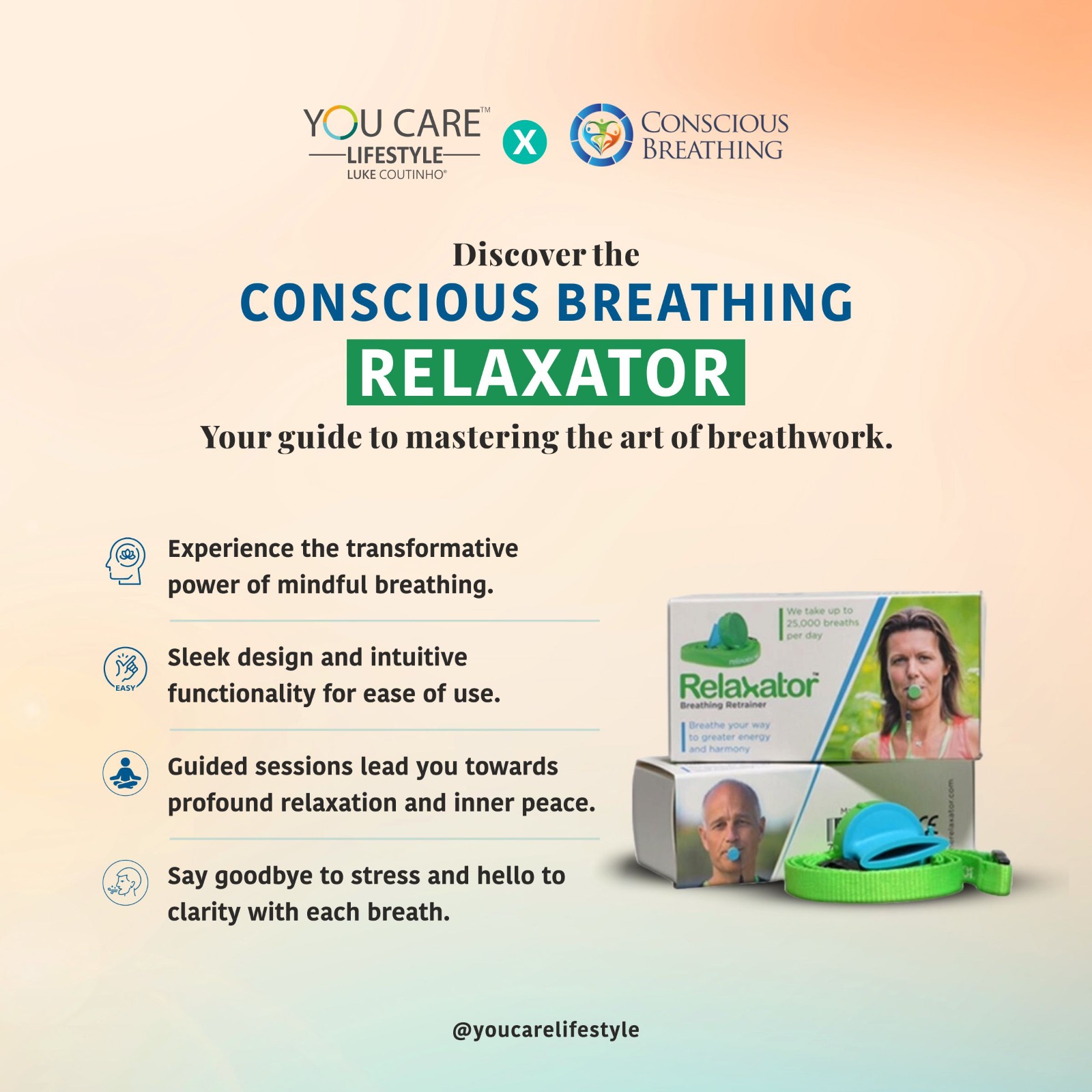Answer honestly.
Do you get sound sleep every day?
Do you sleep for 7-8 hours every day?
Do you want to throw your alarm clock every morning?
If you are keen to read more, you must have realised how far back you are on your sleeping schedule. Honestly, you are not alone. Majority of people today are struggling to get a good night’s sleep on a daily basis. And, it’s not just screen time before bed that affects your schedule. From work to household chores, everything that you do during the day can keep your mind full, hence, no or very less sleep.
Yes, your age can play a huge role in your sleeping habits. But nothing is written with a stamp on it. You can be 70 and still sleep like a baby only if you follow a healthy lifestyle and good breathing practices.
You heard it right. Breathing can play a vital role in relaxing you before and during your sleep.
Let’s understand How Conscious Breathing is Different from Unconscious Breathing to clear your confusion.
Table of Contents
Conscious Breathing Vs. Unconscious Breathing
When it comes to breathing, there's more than meets the eye or nose.
Unconscious breathing, controlled by the medulla oblongata (a small part of the brainstem responsible for controlling vital functions like breathing, heart rate, and blood pressure), is essential for our survival, operating seamlessly without our conscious interference. It's like the autopilot mode of respiration, ensuring oxygen supply to our cells without us even needing to think about it. However, there's another side to breathing that's often overlooked: conscious breathing.
Explaining Conscious breathing in simplest terms, it takes the reins away from the medulla oblongata and hands them over to the cerebral cortex (outer layer of the brain involved in thinking, memory, and consciousness). This deliberate shift in control activates the more evolved regions of our brain, allowing us to engage with our breath on a deeper level. Unlike unconscious breathing, which operates purely on survival instincts, conscious breathing is a deliberate act of mindfulness and presence.
There is more to it.
One of the noticeable aspects of conscious breathing is its impact on our emotional state. By slowing down our breath intentionally, we not only activate the cerebral cortex but also send signals to inhibit the respiratory centre in the midbrain. This, in turn, leads to a calming effect on our emotions.
Moreover, conscious breathing serves as a gateway to mindfulness, enabling us to be fully present in the moment. When we concentrate on each aspect of the breathing process, we let go of past and future concerns, tying ourselves to the present moment. This intentional focus on the breath becomes a form of meditation, helping us cultivate a sense of inner calm and balance amidst life’s chaos, which also helps us in stress-free sleep.
While unconscious breathing ensures our physical survival, conscious breathing manages the potential for greater self-awareness and emotional regulation.
How Does Conscious Breathing Help You Get Deep Quality Sleep?
In the hustle and bustle of modern life, the value of a restful night’s sleep often gets overshadowed by our other commitments. Amidst work obligations, household chores, social engagements, and entertainment, sleep tends to take a backseat.
Today, sleep is becoming more of a luxury than a necessity. And, that is not a good sign. A good night’s sleep is essential to recharge your body, thus, making it a necessity.
Yet, this perspective overlooks the critical role sleep plays in maintaining both physical and mental well-being. Just as essential as nourishment and hydration, quality sleep is foundational to overall health and vitality.
Conscious breathing, as we discussed, can calm your body and mind. It can relax your body at the time of sleep by navigating your confusing thoughts and emotions and give an adequate amount of deep sleep when required.
Conscious Breathing and Deep Sleep
In our need for quality sleep, the way we breathe plays a pivotal role.
Did you know that mouth breathing during rest can lead to hyperventilation (breathing too quickly or deeply, often leading to an imbalance of oxygen and carbon dioxide in the body), causing oxygen deficiency and disrupting our sleep cycle?
Interestingly enough, everyone has a different tendency to sleep with mouths open, a habit closely tied to poor breathing patterns and restless nights. Breathing the right way, especially during rest, helps in nasal breathing as it efficiently meets the body’s oxygen needs.
Studies suggest that you should sleep with your mouth closed so that respiration happens only through the nose.
Let’s get a bit deeper into it.
One essential function of the process of better sleeping involves the lymphatic system, responsible for detoxification and waste removal. While the brain lacks lymph capillaries, it undergoes a thorough cleansing process during sleep. The glymphatic system, activated during rest mode, facilitates the removal of metabolic waste from brain tissue.
We would like to underline the importance of slow, deep breathing in taking full advantage of the glymphatic system’s function. Mindful breathing practices improve brain detoxification. Moreover, physical activity during the day enhances glymphatic flow during sleep, highlighting the interconnectedness of lifestyle factors and sleep quality.
Always remember, by following conscious sleep practices, we increase the possibility of restorative, rejuvenating nights that support overall well-being and cognitive function.
For deeper breaths, try the Relaxator Breath Trainer. 



Comments